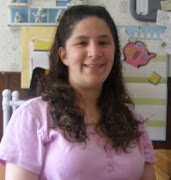
When writing a story, it's important to know your character. It's been said you should know your character as well as you know yourself. One way to do that is to "interview" your character. You aren't going to use all the information you come up with, but you will have a rich background of information to choose from.
How do you interview a character? Put yourself in the frame of mind of your character. What would she say or do in response to the questions? Before you know it, your character might not be able to stop talking.
Here are my top ten questions I ask my character:
10. Where do you live?
9. Who is in your family?
8. Do you get along with your family?
7. Who is your best friend and why?
6. What do you think of school? Is it fun, boring, horrifying?
5. What is the best thing that ever happened to you? Worst?
4. What do you like to do when you aren't in school or with your friends?
3. What do you do when you get upset? Do you have a special place you go, or a routine you follow?
2. What do you think of boys/girls?
1. Tell me one interesting thing that your best friend doesn't even to know.
I'm sure you can come up with even more questions. Once you get an idea of who your character is, you might end up with pages of questions to ask them. That's okay. The more you know, the better your readers will enjoy your character.
Happy Writing!

2.jpg)


